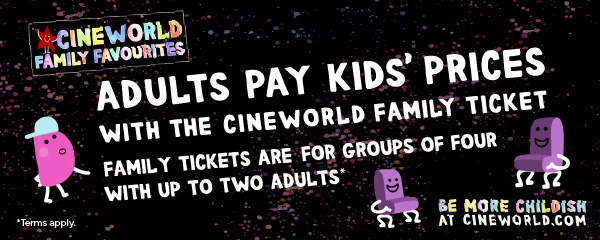
Moving legal drama Just Mercy, now available to stream, is expressly designed to stir the emotions and fire up anger towards injustice.
The movie is based on the memoir of the same name by attorney Bryan Stevenson, who as a young law graduate decided to represent those wrongly placed on death row in America's deep south. It initially appeared to be a folly, as he came up against bureaucratic red tape and systemic racism, but over the years Stevenson has succeeded in freeing an extraordinary number of people from bondage.
The movie is centrally based on Stevenson's crusade to free the wrongly convicted Walter McMillian, a black man accused of murdering a white woman. (That the story unfolds in Mobile, Alabama, the town on which To Kill a Mockingbird is based, is a horrible irony.) Black Panther and Creed actor Michael B. Jordan portrays Stevenson in the movie, and Django Unchained's Jamie Foxx portrays McMillian.
Back in January, we attended a Q&A with Jordan, Foxx and Stevenson to discover the inspiration behind the movie, and the message they hope audiences will take away from it. This, then, is Just Mercy in their own words...
Jamie Foxx on his personal experiences of racism...
"I'm from Terrell, Texas, and being where I'm from, being from the deep south, I grew up around this. I have to commend Michael B. Jordan for doing a film like this. He's a young, big star in the world, and could have been doing any movie in the world, but the fact that he wants to do this really speaks to our culture. The fact that we're now getting Bryan Stevenson's name out is amazing.
I just recently met my friend [fashion designer] Ozwald Boateng and, having seen the movie, he was full of questions about what he could do next. That appears to be the same for everybody who watches this film. The movie tested as a 97 in front of an all-black audience, whereas with an all-white audience it was 98.
So, this movie is so important. The fact that I am from the south gave me a little bit of intel about what it's like to have racism in your face. The film doesn't say that all people are like that, but more those that are in charge. Those people who have been voted into positions are the ones who can make life very difficult as a black person.
I'm very happy to be a part of this and I think it's the most important movie I've ever done."
Michael B. Jordan on discovering Bryan Stevenson...
"I think for me, when I read Bryan's memoir and started to understand more about his work, I was embarrassed not to have been aware of him beforehand. So, I got a chance to listen to his TED Talk and hear him speak, and I got a chance to meet him and get to know him over a period of time.
For me, it was more about, how do I get Bryan to become a household name? How can I use my platform to make that possible? I therefore ran towards the idea of making this movie. Bryan has been so involved with the movie, helping us to write the script and developing draft after draft over the course of five years. Then Warner Bros came on board to help us distribute and get the movie seen around the world.
I want people who watch the movie to experience the same feeling of self-discovery that I did. How could I not make this movie? Being black in America, wearing the skin with the presumption of guilt that goes along with it – how could I help to change that narrative? How can I help change the perception of what it is to be black? I just had to be a part of that.

Bryan Stevenson on watching his story come to life...
"[Seeing the movie for the first time] was surreal. Just I've spent many years representing people on death row, going into jails, standing next to people who have been condemned, people who have been treated so cruelly. When the movie came along, I was really excited, if a little apprehensive at first, because Hollywood doesn't always get it right. And I'm so grateful to Michael because when he got involved, it became clear he's not just talented or creative. He's genuinely a good person. He's also really dedicated to these issues.
And when Jamie came on board, it was so clear his whole heart was in the performance; you can see that in the movie. You can see the weight, the pain, the anguish, the suffering that so many of us have had to endure, because we are presumed guilty, we are presumed dangerous.
I can't tell you how excited I am to share this with the world. I've always believed that if people could see what I see on a daily basis, mothers being pulled away from kids, loved ones being put in the electric chair and so forth, then everyone could start to comprehend the depth of this problem. And now, through these extraordinary performances, people get to see that.
I think when people see the movie, they will be motivated to do things, to stand up even while others say sit down. To be motivated to speak, even though others will tell them to be quiet. I'm standing on the shoulders of people who did so much more for so much less, who bled and died for America. We want that feeling to be gifted to another generation, and I think this film can play an important role in opening minds and hearts.
The one thing that was really important to me was the inclusion of the [death row inmate] Herbert Richardson story. I think a person is so much more than the worst things they've ever done. If somebody tells a lie, they're not just a liar. If somebody kills somebody, you're not just a killer. That idea was really important to me.
I didn't want the story to feature all innocent people, because if we got all the innocent people out of jail, we'd still have an unjust system. You can be guilty and unfairly sentenced. You can be guilty and unfairly punished. So Herbert's story, Herbert who did something wrong but was nonetheless traumatised by his time in Vietnam, that was an important part of the story for me. I lived through that aspect of the narrative.
Until we understand the pain of injustice, the weight of inequality, the brutality of bigotry and bias, we're not going to do the fight the right way. I've been hearing from so many people, so many families who say this film gave me hope. That, maybe, something good will happen to my loved one. If we can revive this hopefulness, this belief in reviving a just system, then this isn't just a movie any more. It's a statement about what can happen when people pull together and use their voices to fight for the things that matter."

Michael B. Jordan on the lessons of the movie...
"For me, being able to do bigger movies, blockbusters, action films and stuff, is fun. I love it. But I think I'll always come back and do stories like this. I'll always be able to give a voice to the voiceless and shine lights on subjects that need to be seen. That's going to be how I move.
With Fruitvale Station, at the time we were making that, Trayvon Martin got shot. I was super frustrated to the point that I didn't really know what to do. I didn't know how to express myself. Thank god that Ryan Coogler came along and I did get a chance to express myself. That feeling of expressing myself through a movie like that... It changed me, it made me grow up. And after doing this movie, I'm going to take the lessons that I've learned, the scope, the vision, with me for the rest of my life."
Jamie Foxx on playing a real person...
"Aesthetically, me and Walter look alike. We have the same cheekbones and diamond head, and the box-cut haircut. I had that in the Eighties. When you're trying to portray a character that's actually lived, that helps. In this instance, Walter wasn't around to ask, but with help from Michael and Bryan, I learned that Walter was gregarious and hopeful in this bad situation. I've been to death row before, and the worst thing you can give a death row inmate is hope. Yet Walter was the opposite of that maxim.
[Director] Destin Daniel Cretton and Michael put this thing together so beautifully, particularly in the way the three death row inmates interacted. That was so important to me, because we can see beyond the horrible situation. And when it came to the way Walter spoke, being from the south, we talked about how much of that we wanted to do. We wanted it to be audible and for people to understand what I was saying, but I also wanted people to understand that Walter is from a specific region. And being from that region, even in the voice, you can tell that something is different.
Putting the character together was one thing. When we were shooting in the jail, the actor playing the correctional officer asked the real correctional officer what he should do with the cuffs. "Put it on tighter, he's a bigger one," is what the man said. I said, "Hey man, the cuffs are tight enough." That put something in my head so when I was talking to Michael as Bryan, all of the anger made the character take off in the right direction. That was how I found Walter."

Bryan Stevenson on his advice to Michael...
"He's really talented. People don't really appreciate the kind of skill these men have. When I met Michael, it was already clear he had thought a lot about how to do this. To be honest, when I first met him, what blew me away wasn't his skill as an actor; it was how genuinely nice he is. He's a good, solid human being, and he doesn't have the pretence or the ego that I expected. I was therefore hopeful that we could work together in a way that was powerful, and we have.
We spent a lot of time on the choreography of moving in a courtroom. As a lawyer, when you watch these lawyer movies, the thing that really frustrates you is watching people do things they wouldn't be able to do in a court. Michael really mastered that choreography – he knew where to stand, where to move and how to position himself. He really has it down. But most of it was just the heart.
To do the kind of work I do, you have to be tactical and strategic. If all we needed was anger to create justice, then we would have had justice a long time ago. Michael really brought that to the performance. He was committed to being authentic. We used some of the actual court transcripts in the script for the film.
He was talking so much about authenticity, but I reminded him that he didn't have to lose that Black Panther/Creed body prior to filming! [Laughs] It's been such a thrill for me. I love these guys. They're wonderful human beings who care very deeply about this project."
Tweet us your responses to Just Mercy @Cineworld.














.jpg)
.png)



